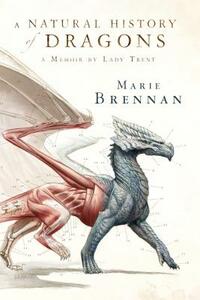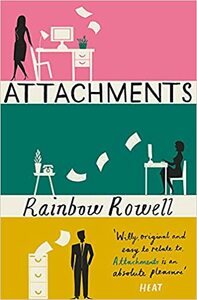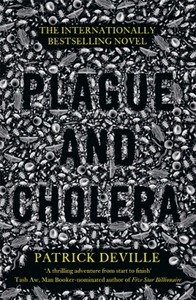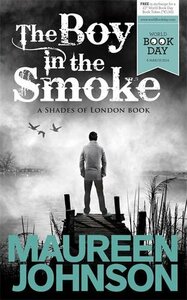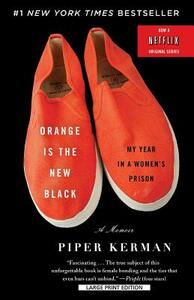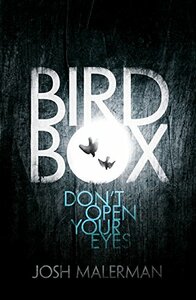Take a photo of a barcode or cover
patchworkbunny's Reviews (2.12k)
I know I don’t usually like comparisons, but parts of it did remind me of The Hunger Games, others made me think of Criminal Minds and there was a constant reminder of Cabin in the Woods in the back of my head, which is a poke at horror clichés anyway. Add to that a new adult vibe, and you might get an idea of what The Wicked We Have Done is like.
At first, the description of the characters as deviant criminals didn’t fit with how they were portrayed, maybe with a couple of exceptions. As the story unfolds, this makes more sense. How often does a crime have complex motives? Is a person evil because of one bad thing? The Compass Rooms were designed to discover if the accused were lost causes. It’s described as a prison, but it’s more of a trial and, if found guilty, executioner.
What is hard to stomach is how people who are victims themselves are treated. Maybe they do deserve some punishment, but making them relive what drove them to the point of murder, seems cruel and unusual torture. In the case of the guilty, it proves they are beyond redemption and that’s that but to those who are more borderline cases, the trial is punishment enough.
It’s a short book, with quite a few characters, which meant it really only touched the surface of some quite interesting issues. I didn’t quite get emotionally invested with the characters, feeling they had potential, but were a bit on the two-dimensional side. Their crimes were glossed over a bit, considering they were quite important to the rest of the plot. Evalyn’s flashbacks could have been skipped altogether for all the understanding they contributed. I still don’t get how you go from not liking your best friend’s boyfriend to becoming involved in a terrorist plot, and what was the point of their terrorism anyway?
Many of the horror aspects were over a bit quickly, although there was one point where I did get a bit creeped out. Maybe it was the accumulation, or maybe just girls with bleeding eyes are just plain scary.
I’m starting to think I should cut some stars in half, then I could give it 3.5. It’s great to see some new adult branching out into different genres and not following the standard, sexy contemporary stories. And it was a page turning read. I just wanted a bit more depth from it. Definitely worth a read for existing new adult fans and those a bit wary of this “new” category.
Review copy provided by publisher.
At first, the description of the characters as deviant criminals didn’t fit with how they were portrayed, maybe with a couple of exceptions. As the story unfolds, this makes more sense. How often does a crime have complex motives? Is a person evil because of one bad thing? The Compass Rooms were designed to discover if the accused were lost causes. It’s described as a prison, but it’s more of a trial and, if found guilty, executioner.
What is hard to stomach is how people who are victims themselves are treated. Maybe they do deserve some punishment, but making them relive what drove them to the point of murder, seems cruel and unusual torture. In the case of the guilty, it proves they are beyond redemption and that’s that but to those who are more borderline cases, the trial is punishment enough.
It’s a short book, with quite a few characters, which meant it really only touched the surface of some quite interesting issues. I didn’t quite get emotionally invested with the characters, feeling they had potential, but were a bit on the two-dimensional side. Their crimes were glossed over a bit, considering they were quite important to the rest of the plot. Evalyn’s flashbacks could have been skipped altogether for all the understanding they contributed. I still don’t get how you go from not liking your best friend’s boyfriend to becoming involved in a terrorist plot, and what was the point of their terrorism anyway?
Many of the horror aspects were over a bit quickly, although there was one point where I did get a bit creeped out. Maybe it was the accumulation, or maybe just girls with bleeding eyes are just plain scary.
I’m starting to think I should cut some stars in half, then I could give it 3.5. It’s great to see some new adult branching out into different genres and not following the standard, sexy contemporary stories. And it was a page turning read. I just wanted a bit more depth from it. Definitely worth a read for existing new adult fans and those a bit wary of this “new” category.
Review copy provided by publisher.
Written in the style of a memoir, A Natural History of Dragons is set in a world similar to Victorian England and its legacy of scientific exploration. It’s not quite steampunk, perhaps in the very early days before everything is steam powered, it could have easily been in our world but with dragons. Of course, it’s a time when ladies are supposed to act ladylike and not traipse off to heathen lands on expeditions.
The memoir style allows Lady Trent to look back on some of her thoughts and actions with hindsight. Perhaps we can’t expect a 19 year old woman from a high society background to be completely free from naivety or ignorance, and the older narrator can point out where she has since come to think otherwise. She references her other works, reminding us that the world exists outside the pages of this book.
It’s odd, the narrative voice is one I thought I wouldn’t have warmed to, but by the end I was invested in her character and moved by her honesty. She cares about dragons but she has the sense to put people first; good people at least. I loved the relationship between her and her surly ladies’ maid, Dragmira. She might be the farthest she can get from the staff at home but she ends up exactly what she needs. A Scirling maid surely wouldn’t have put up with her running after dragons and strange men.
Review copy provided by publisher.
The memoir style allows Lady Trent to look back on some of her thoughts and actions with hindsight. Perhaps we can’t expect a 19 year old woman from a high society background to be completely free from naivety or ignorance, and the older narrator can point out where she has since come to think otherwise. She references her other works, reminding us that the world exists outside the pages of this book.
It’s odd, the narrative voice is one I thought I wouldn’t have warmed to, but by the end I was invested in her character and moved by her honesty. She cares about dragons but she has the sense to put people first; good people at least. I loved the relationship between her and her surly ladies’ maid, Dragmira. She might be the farthest she can get from the staff at home but she ends up exactly what she needs. A Scirling maid surely wouldn’t have put up with her running after dragons and strange men.
Review copy provided by publisher.
Overall, The Geography of You and Me is a lovely and sweet contemporary story about two people who click and then are forced apart. They don’t spend their summer pining over each other, they each have their own lives, but their correspondence starts to mean something. Owen is the rare breed of a teenager without a phone (or he has a basic one and won’t text for some reason), and the postcards become their thing as he travels across America, with his dad looking for work.
It’s interesting how more and more young adult writers are shunning technology in favour of a simpler world. In reality, Lucy and Owen would be connected constantly through phones, email and social media.
There’s some good use of short chapters, when they are completely apart, but thinking of each other at the same time. Their thoughts flit from page to page, back and forth. There’s this moment where Lucy’s mum just understands everything, which made me tear up a little. She might seem like an uncaring, absent mother but she demonstrates that she is far from it in just a few lines.
People of Edinburgh, be warned, you might get offended. Lucy (and her dad) think the whole city smells of stew. It’s mind boggling how every other location gets treated with respect but Scotland is a land of stereotypes. It’s depicted as a dull place with horrid food. Imagine going to Florence and saying the food was awful because you only ate tripe sandwiches? That’s the same as blaming Edinburgh’s bad food on there being nothing but haggis and neeps to eat. Is she incapable of finding a supermarket?
Clearly Lucy is missing home and Owen, so Edinburgh has probably got the raw deal in order to depict her sadness. Maybe she’s just happier in other places so they’re described with a bit more enthusiasm. Still, it irked me. This is becoming a pattern with this author, maybe I’ll only read her books that stay well away from Britain!
Review copy provided by publisher.
It’s interesting how more and more young adult writers are shunning technology in favour of a simpler world. In reality, Lucy and Owen would be connected constantly through phones, email and social media.
There’s some good use of short chapters, when they are completely apart, but thinking of each other at the same time. Their thoughts flit from page to page, back and forth. There’s this moment where Lucy’s mum just understands everything, which made me tear up a little. She might seem like an uncaring, absent mother but she demonstrates that she is far from it in just a few lines.
People of Edinburgh, be warned, you might get offended. Lucy (and her dad) think the whole city smells of stew. It’s mind boggling how every other location gets treated with respect but Scotland is a land of stereotypes. It’s depicted as a dull place with horrid food. Imagine going to Florence and saying the food was awful because you only ate tripe sandwiches? That’s the same as blaming Edinburgh’s bad food on there being nothing but haggis and neeps to eat. Is she incapable of finding a supermarket?
Clearly Lucy is missing home and Owen, so Edinburgh has probably got the raw deal in order to depict her sadness. Maybe she’s just happier in other places so they’re described with a bit more enthusiasm. Still, it irked me. This is becoming a pattern with this author, maybe I’ll only read her books that stay well away from Britain!
Review copy provided by publisher.
I loved the emails between Jennifer and Beth; they were lovely and natural. Lots of laughter and random going off on tangents. If the whole book had been liked that, it might not have worked, even if it is entertaining, but their conversations are split up by a more normal third person narrative from the point of view of Lincoln. It might seem far-fetched to employ someone to read employee emails, but I’ve worked at a few places where I could imagine it. I had a good laugh about the Y2K stuff; remember the panic everyone had back then?
Lincoln’s story is a little slow in places. I got a bit bored of his history with Sam. I knew they weren’t together anymore and I don’t think I cared about the how. I much preferred his time spent chatting with Doris in the break room, his Dungeons and Dragons group and his awkwardness at knowing too much about Beth. The scene in the carpark is just wonderful.
There’s just enough cynicism to stop it being saccharine and completely unbelievable. There is some caricature going on and I’m not quite sure I got Chris. His explanation to how he was just seemed woolly and I wanted Beth to smack him. I mean, she was a wonderful, understanding girlfriend and he just had an odd, and fairly selfish, attitude, that he liked to think of as love.
Lincoln could have been creepy. But he is such a nice guy and his decisions come out on the right side by the end. I think we’ve all had a work crush at one point in our lives, and I thought Beth’s side was spot on. You know, you give them a name, you make excuses to be places where they are but then, actually, don’t do anything about it. But it’s fun to have one.
The ending really resonated with me. I had a few sniffles, at a couple of points, but it was overall much more an uplifting story than Eleanor & Park turned out to be (I did some Twitter research before picking this one up, just to be on the safe side).
Lincoln’s story is a little slow in places. I got a bit bored of his history with Sam. I knew they weren’t together anymore and I don’t think I cared about the how. I much preferred his time spent chatting with Doris in the break room, his Dungeons and Dragons group and his awkwardness at knowing too much about Beth. The scene in the carpark is just wonderful.
There’s just enough cynicism to stop it being saccharine and completely unbelievable. There is some caricature going on and I’m not quite sure I got Chris. His explanation to how he was just seemed woolly and I wanted Beth to smack him. I mean, she was a wonderful, understanding girlfriend and he just had an odd, and fairly selfish, attitude, that he liked to think of as love.
Lincoln could have been creepy. But he is such a nice guy and his decisions come out on the right side by the end. I think we’ve all had a work crush at one point in our lives, and I thought Beth’s side was spot on. You know, you give them a name, you make excuses to be places where they are but then, actually, don’t do anything about it. But it’s fun to have one.
The ending really resonated with me. I had a few sniffles, at a couple of points, but it was overall much more an uplifting story than Eleanor & Park turned out to be (I did some Twitter research before picking this one up, just to be on the safe side).
The opening chapter sees Kit stalking a boy at high school, a contemporary setting with a hint of other. But soon the story moves away from that and she’s running across the country, facing mortal peril and discovering the Otherwhere. It’s a lot less urban fantasy than I was expecting; Kit doesn’t nearly have enough real world problems and lives her life in a large, secluded house. There’s plenty of time spent in Devon and London, yet it often felt like another world. I really liked the little diversions to viewpoints in the Otherwhere and started to want to know more about their history. It’s inevitable that the two worlds will collide.
Many chapters start with a snippet of information taken from the archives of the HMDSDI or the Blackheart Bestiarium. I do quite like this technique for a first person narrative in a world different to ours, as it is handy to pass over information that the narrator might not know. However, in addition to this, there is a lot of explanation given through dialogue. Kit’s not known her heritage for very long so she needs to be told a lot and in some cases the dialogue turns into a bit of a monologue. I felt this got in the way of getting to know Kit a bit. There’s a whole load of interesting world-building but I never felt much emotion towards her.
There is a romance, for most of the book it feel like a small thing. Kit quite fancies the handsome prince. Fair enough. At one point their relationship becomes pivotal to the plot however something was missing. It’s not instalove but it might well as be. I kind of wish there was some other motivation for the bits that are otherwise really good and exciting.
I don’t want to sound like I didn’t enjoy Banished; I did. It’s often the case with fantasy that world-building takes a while and I found it much pacier in the second half. I liked the mythology weaved in with elements of fairy tales but there’s a lot of it. And for me, it sometimes got in the way of the characters, who I so dearly wanted to know more about. I think I’d like Kit, if I got to know her better.
As a debut novel and start of a new series, it holds plenty of promise and I will be interested to see where the story goes next.
Many chapters start with a snippet of information taken from the archives of the HMDSDI or the Blackheart Bestiarium. I do quite like this technique for a first person narrative in a world different to ours, as it is handy to pass over information that the narrator might not know. However, in addition to this, there is a lot of explanation given through dialogue. Kit’s not known her heritage for very long so she needs to be told a lot and in some cases the dialogue turns into a bit of a monologue. I felt this got in the way of getting to know Kit a bit. There’s a whole load of interesting world-building but I never felt much emotion towards her.
There is a romance, for most of the book it feel like a small thing. Kit quite fancies the handsome prince. Fair enough. At one point their relationship becomes pivotal to the plot however something was missing. It’s not instalove but it might well as be. I kind of wish there was some other motivation for the bits that are otherwise really good and exciting.
I don’t want to sound like I didn’t enjoy Banished; I did. It’s often the case with fantasy that world-building takes a while and I found it much pacier in the second half. I liked the mythology weaved in with elements of fairy tales but there’s a lot of it. And for me, it sometimes got in the way of the characters, who I so dearly wanted to know more about. I think I’d like Kit, if I got to know her better.
As a debut novel and start of a new series, it holds plenty of promise and I will be interested to see where the story goes next.
Short prequel to The Name of the Star. Works quite well as a story in itself and fills in the details of Stephen's past.
So first off I should point out I haven’t watched the TV show based on this book, so I can’t make comparisons. I have heard it is quite different though. Certainly it’s been made more dramatic than this non-fiction tale which shines the light on the kind and generous nature of Piper’s fellow inmates. It’s not what I was expecting. She was undoubtedly a very lucky woman, to have an amazing support system on the outside but also her circumstances inside the prison weren’t as bleak as you’d imagine.
Piper’s main focus is to show the injustice of the statutory minimum sentences for drug offences in the US. Many of the women are inside for minor things and their sentences are certainly not about rehabilitation. Instead the prison makes it even harder for them to sort their lives out afterwards. In showing the positive sides of the women she befriended, it’s easier to make her argument. She felt it would be just as effective for her to have done the time in community service, working with the kind of people she hurt through her actions.
The strength of the book for me was the anecdotal nature of the way they all spent their days and the small trials and tribulations of life inside a prison where you have to look out for each other. It’s a book that’s probably better dipped into as reading for long stretches made me crave a proper story with dramatic ups and downs. Though prison is monotonous, so it can only reflect what she experienced.
I did like their creativity with the limited food they had and their microwaved delicacies. I started to crave some prison cheesecake after a while and some chilaquiles (basically tortillas cooked in salsa). You don’t expect food cravings from a book about prison!
I read this for book group and many of my fellow members felt Piper was a bit self-centred and they wanted more information on the other inmates. There are probably more in-depth books on the subject out there but this is an easy read, and is a different perspective than we usually get to see in the media. So I think it’s worth reading if you’re interested in the subject matter but not if you’re after some sort of expose or thrilling read.
Piper’s main focus is to show the injustice of the statutory minimum sentences for drug offences in the US. Many of the women are inside for minor things and their sentences are certainly not about rehabilitation. Instead the prison makes it even harder for them to sort their lives out afterwards. In showing the positive sides of the women she befriended, it’s easier to make her argument. She felt it would be just as effective for her to have done the time in community service, working with the kind of people she hurt through her actions.
The strength of the book for me was the anecdotal nature of the way they all spent their days and the small trials and tribulations of life inside a prison where you have to look out for each other. It’s a book that’s probably better dipped into as reading for long stretches made me crave a proper story with dramatic ups and downs. Though prison is monotonous, so it can only reflect what she experienced.
I did like their creativity with the limited food they had and their microwaved delicacies. I started to crave some prison cheesecake after a while and some chilaquiles (basically tortillas cooked in salsa). You don’t expect food cravings from a book about prison!
I read this for book group and many of my fellow members felt Piper was a bit self-centred and they wanted more information on the other inmates. There are probably more in-depth books on the subject out there but this is an easy read, and is a different perspective than we usually get to see in the media. So I think it’s worth reading if you’re interested in the subject matter but not if you’re after some sort of expose or thrilling read.
I found these three short story "thrillers" very easy reading.
The stories are interconnected by a restaurant and the theme of revenge mingled with food. Whilst I thought the first two stories, Creme Brulee and To The Last Bite worked well as short stories but I think I missed the point on Shashlyk and Morozhenoe which felt more like a beginning of something.
Don't expect much character development as the stories are on the shorter side of short. The writing style is very matter of fact and I think it would appeal more to thriller fans that wanted something to fill an hour.
The stories are interconnected by a restaurant and the theme of revenge mingled with food. Whilst I thought the first two stories, Creme Brulee and To The Last Bite worked well as short stories but I think I missed the point on Shashlyk and Morozhenoe which felt more like a beginning of something.
Don't expect much character development as the stories are on the shorter side of short. The writing style is very matter of fact and I think it would appeal more to thriller fans that wanted something to fill an hour.

